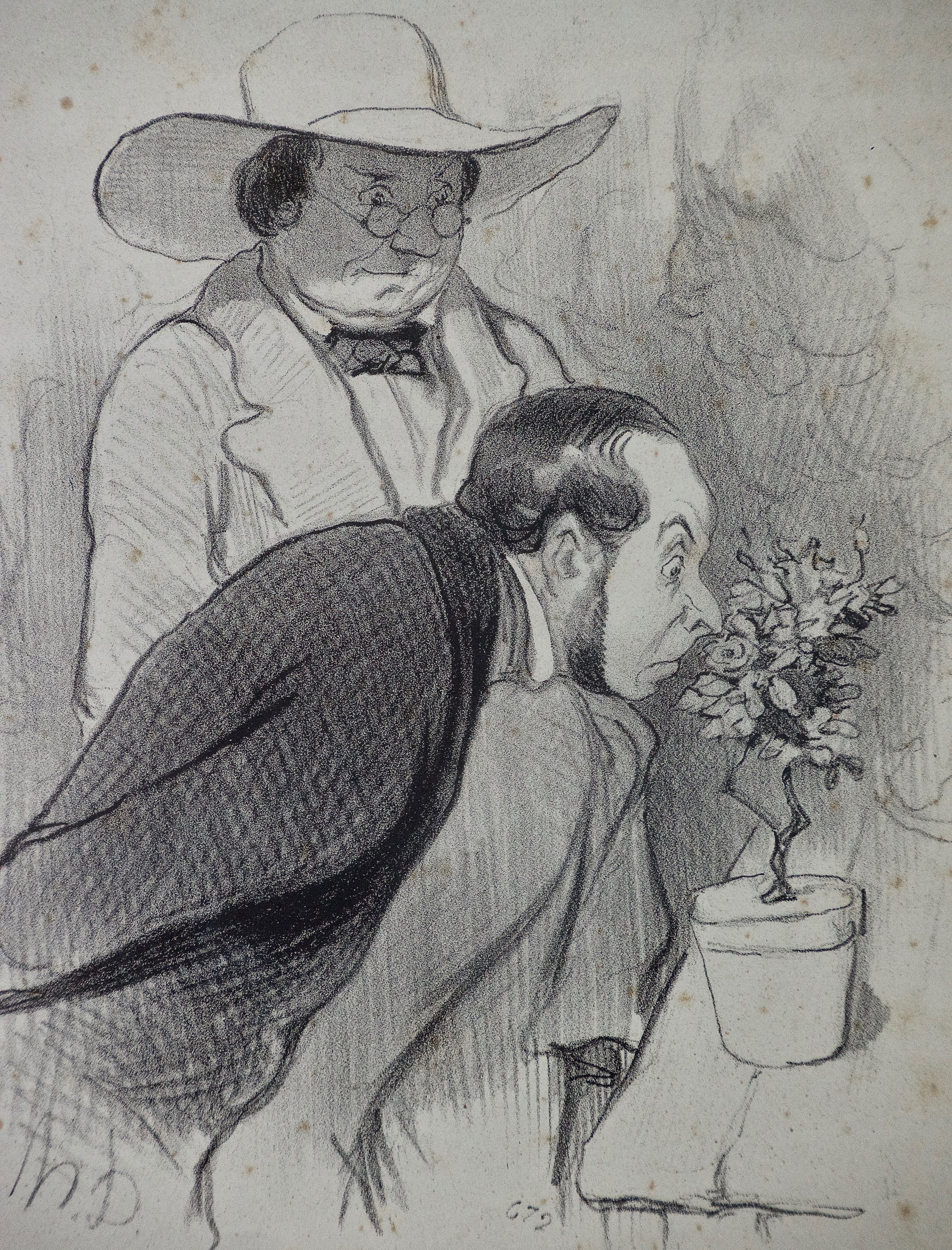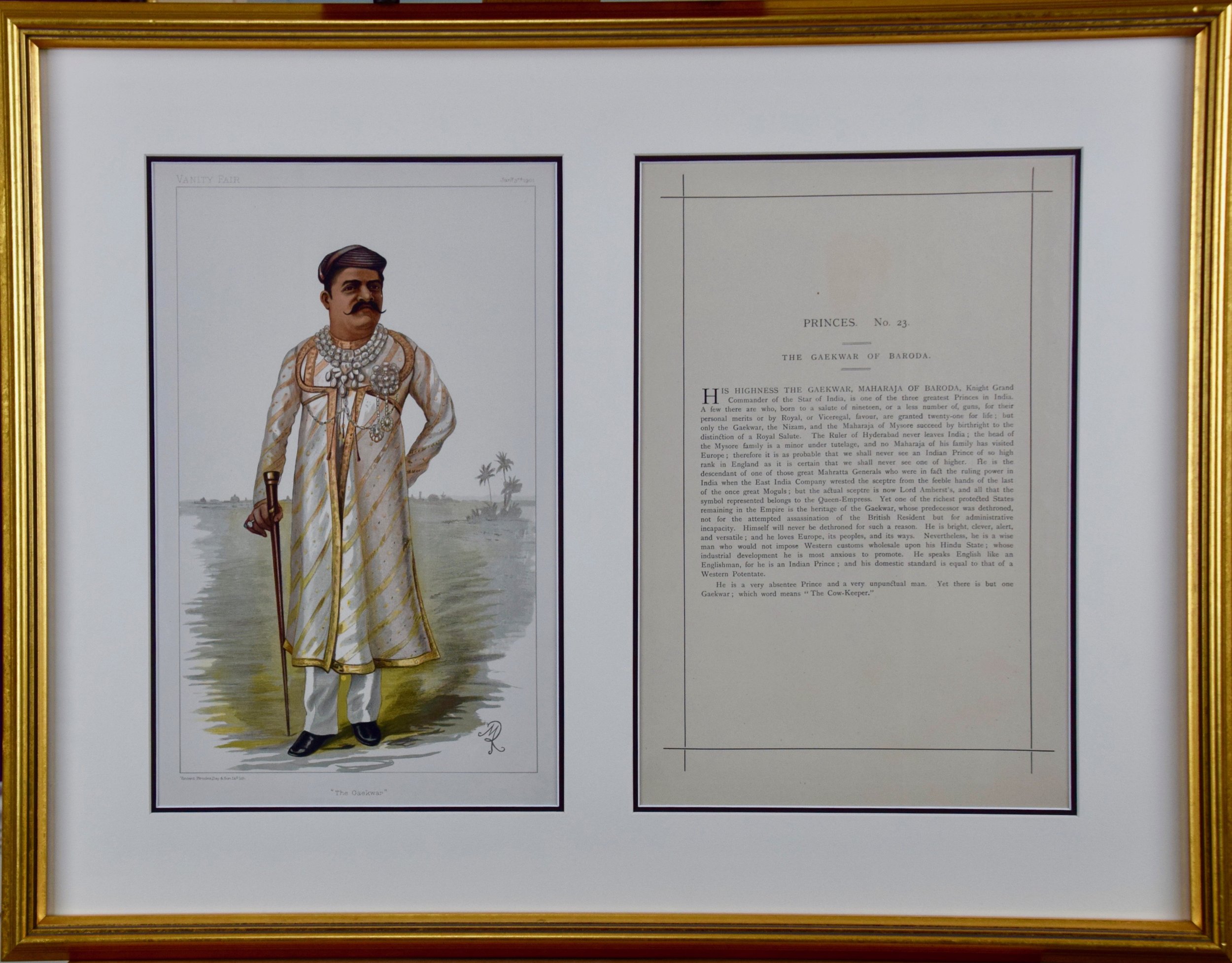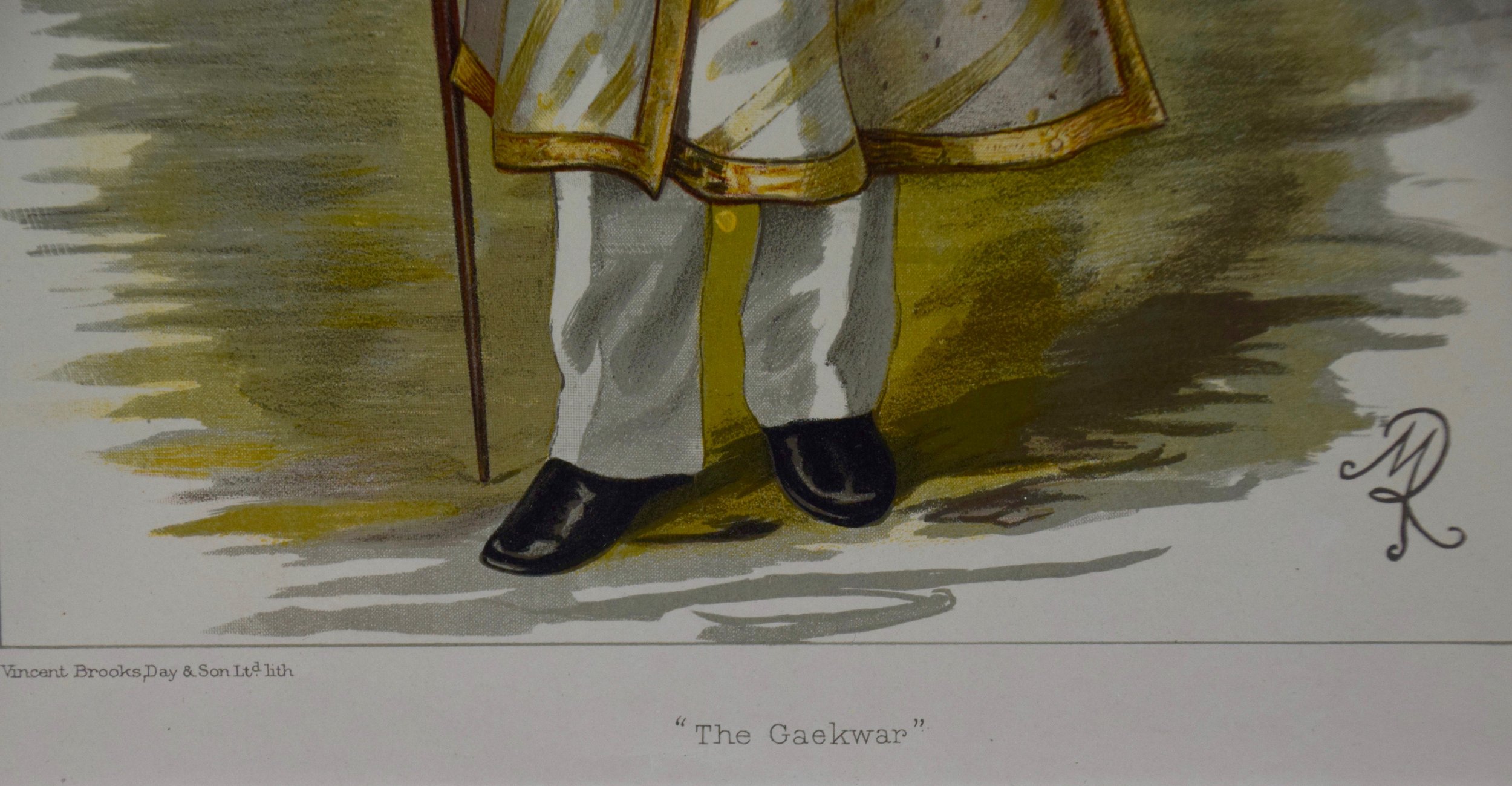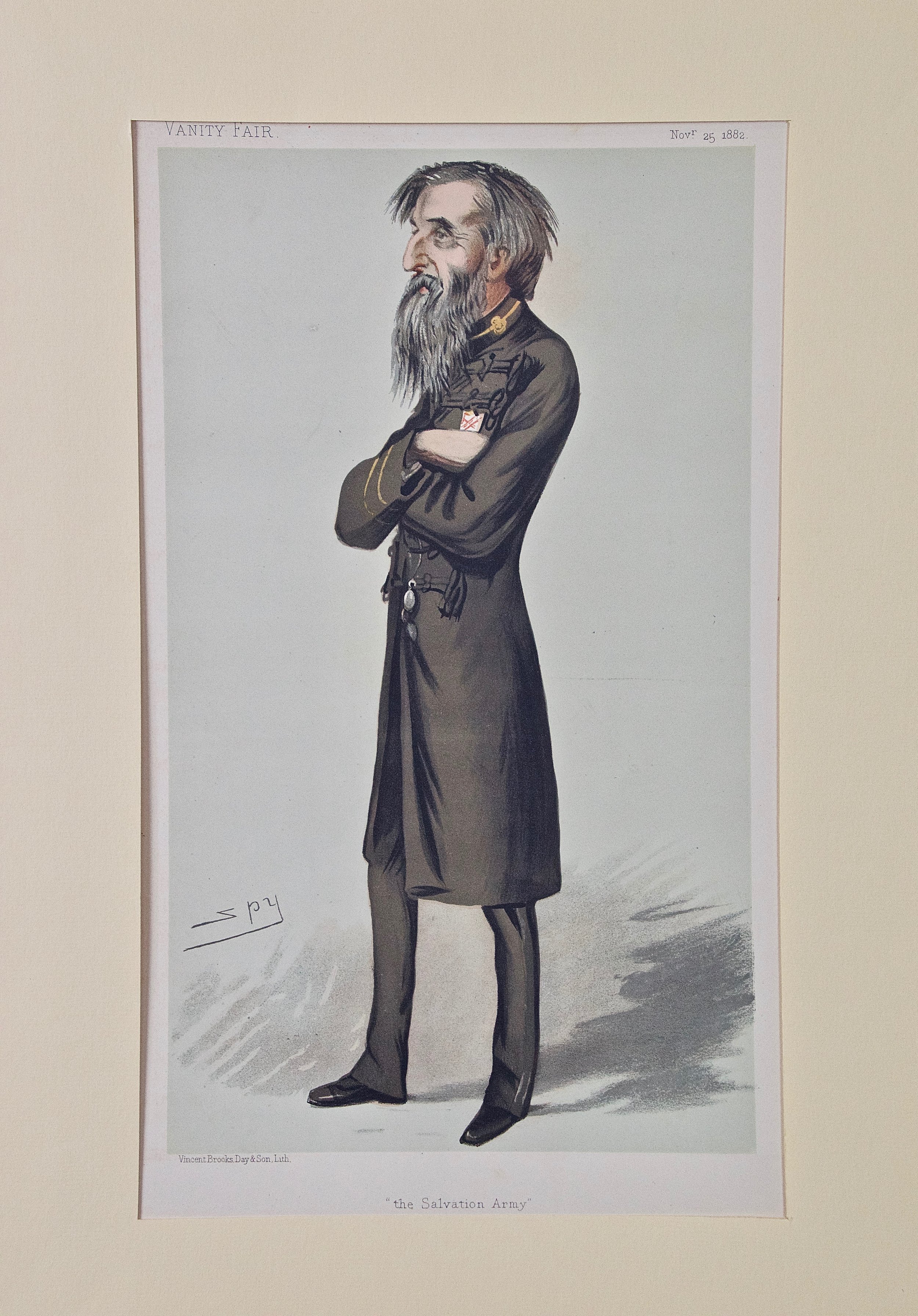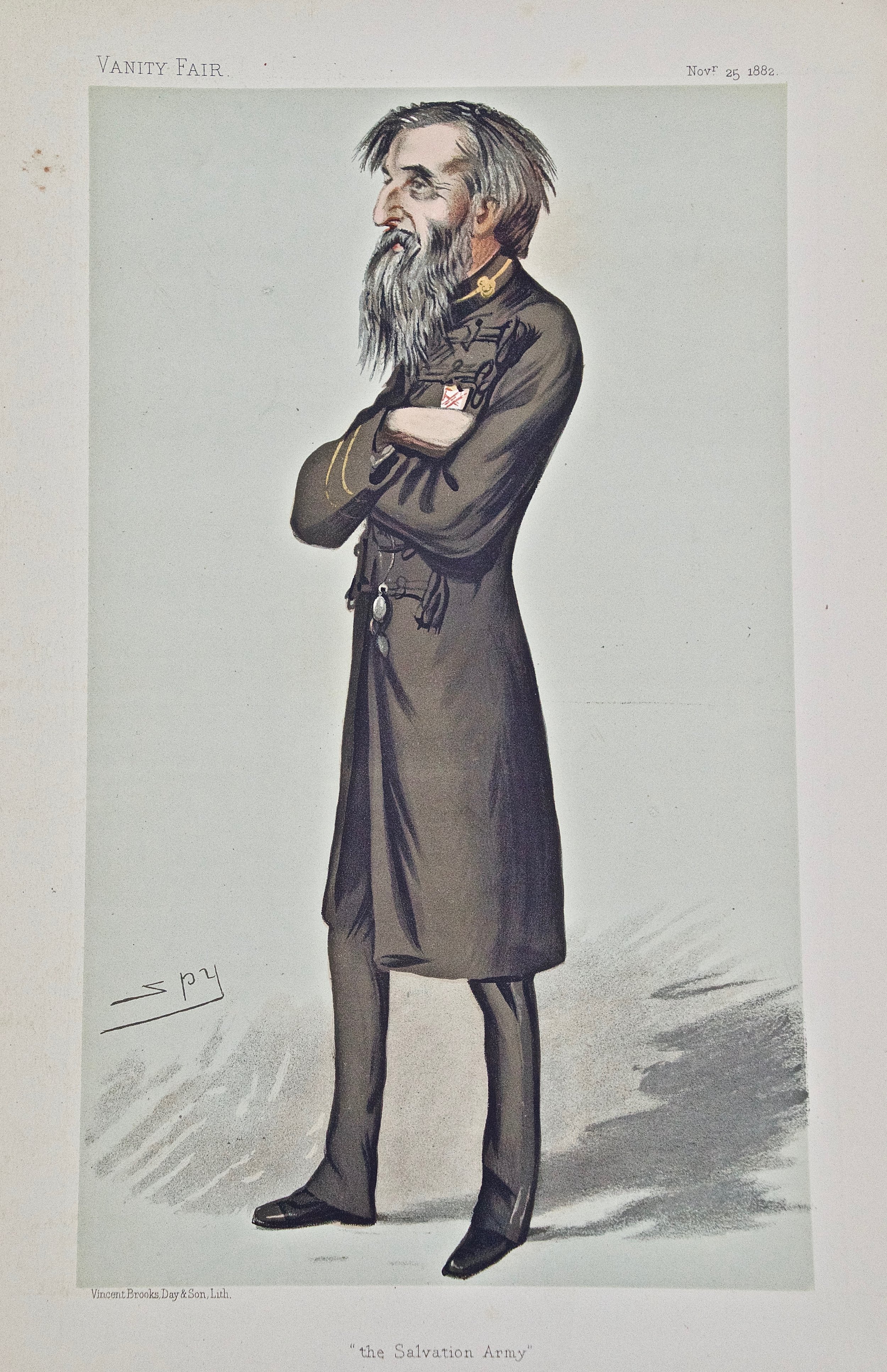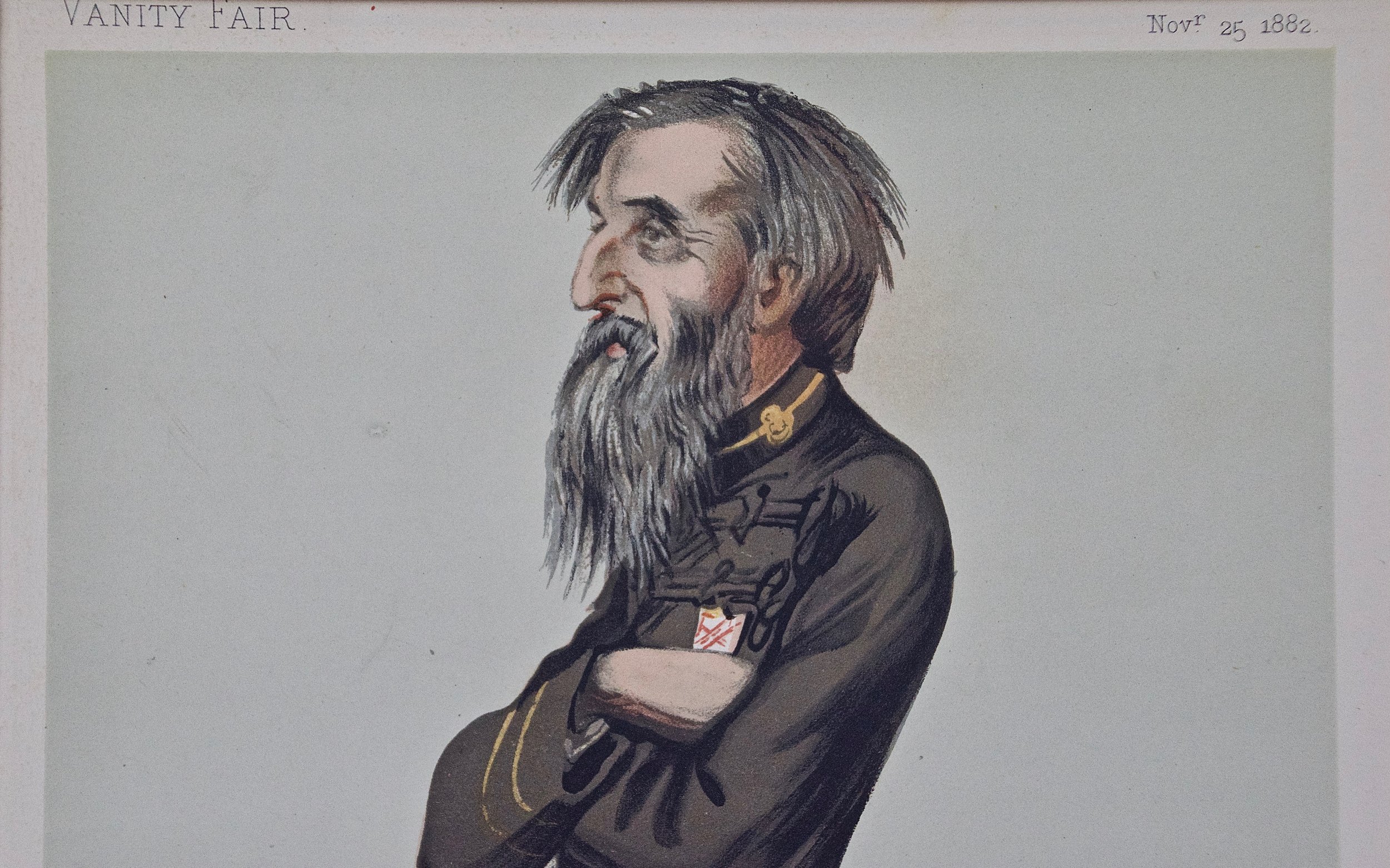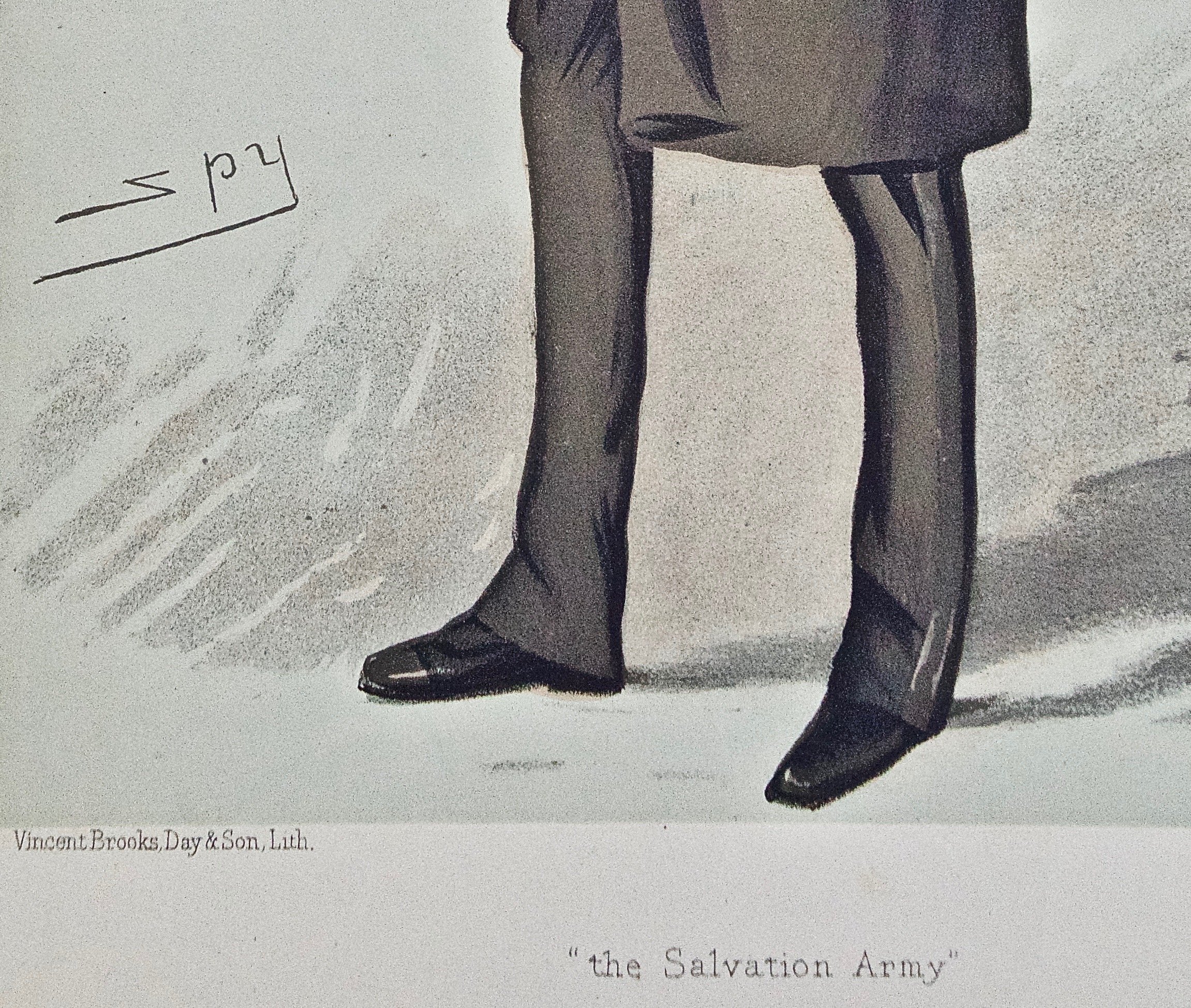This lithograph's Inscriptions: Upper left above the image: "LES BEAUX JOURS DE LA VIE." (The Best Days in Life); lower right in block: "672"; lower left below the image: "Chez Aubert & Cie. Pl. de la Bourse 29."; lower right below the image: "Imp. d'Aubert & Cie."; lower center below the image: "UN TRIOMPHE DE BOTANISTE. Tenez, monsieur, flairez moi ça... voila une rose dont je suis fier, elle fleurit pour la première fois.... à force de soins et de patience, je suis parvenu à lui faire acquérir l'odeur de la rhubarbe!.. je dois être cité dans le prochain numéro du journal des Connaissances utiles." Daumier's initials (hD) can be found in block in the lower right.
The print is presented in a simple black wood frame and a cream-colored mat. There is scattered spotting, but the print is otherwise in good condition.
Artist: Born in Marseille, Honoré Daumier moved to Paris at the age of eight. During his forty-year career, he produced over 4,000 lithographic caricatures and hundreds of small oil paintings, a body of work which endures today as one of the greatest bodies of satirical art ever produced. In 1832, he was convicted and jailed for insulting the King in a print called Gargantua, which depicted King Louis Phillippe on a giant chamber pot excreting political favors. From then on Daumier generally avoided political topics and used the middle class city-dwellers of Paris as his subjects. His prints appeared regularly in several Parisian satirical journals, the most famous being Le Charivari. Daumier targeted the expanding class of French bourgeoisie and their pretensions to gentility, intellectualism and wealth. He used compassion and gentle humor to reveal ironies and satire. The closest he ever came to political satire after his imprisonment was a series of thirty-nine prints depicting legal proceedings, lawyers and judges, entitled Men of Justice (1845-48). These works, among his best known, are decidedly stronger in the criticism of their subjects. His other subjects include comedic theatre, charlatans of every variety, artists and collectors, Parisian women and the newly emerging railway. Daumier enjoyed great popularity during his life, but never managed to achieve financial success. Publications Publishing Daumier's work: Le Charivari; La Silhouette; La Caricature; La Caricature Provisoire; Le Boulevard; La Revue Comique; Le Petit Journal Pour Rire; Le Journal Amusant; La Presse; Le Monde Illustre



